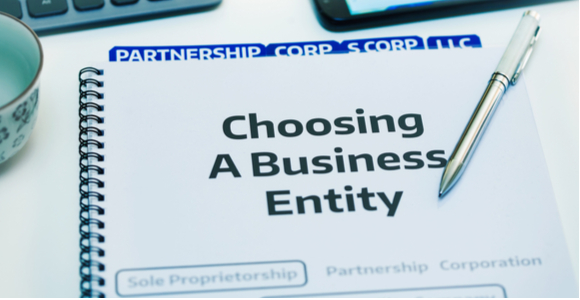WE CAN HELP YOU CALL US TODAY
WE CAN HELP YOU CALL US TODAY

When you are looking to form a business, one of the biggest decisions for you to make is what kind of business entity you will choose. A lot of factors go into this decision, and for the most part, no one type of business entity is better than another. It’s more a matter of what is important, and what’s not so important to you, and choosing the entity that fits what you are looking for. A Lincolnshire business attorney can help you understand your options.
One consideration for a lot of business owners is taxes, and what kind of business will maximize your tax benefits, and minimize your tax liabilities. Here is a quick rundown of how the main types of companies that you can form will affect you when it comes to taxation.
Sole Proprietorship
Although there can be some benefits to a sole proprietorship, this often is not the best vehicle for tax reasons. All profits of the business will be subject to being taxed, even money sitting in the bank at the end of the tax year.
Although not related to taxation, a sole proprietorship often provides little or no legal protection for its owners, the way an incorporated company would do.
However, you can deduct or write off expenses. Just make sure that you keep separate records for the business, to avoid “commingling your own income or expenses, with the business’ financial records.
S Corporations
An S Corporation is a pass-through entity, which means that the business itself doesn’t pay income taxes., The income passes to you, individually, as the business owner, which could increase your personal taxes. If you have a number of deductions at the personal level, however, this may be a good option for you. This is so because you personally may have more deductions available to you than the company would have if it had to pay taxes on that income.
S corporations also get a 20% deduction in taxable income that is passed to you individually. This will allow you to reduce the taxable income that passes from the business to you, personally, by 20%.
C Corporations
This is the more traditional corporate entity, and it has a number of benefits. However, C corporations often are subject to being taxed twice. First, the business is taxed on the income it makes, and then the income that goes to company shareholders is also considered taxable income. The company cannot deduct the dividends paid to shareholders from its taxes.
However, the law does allow you to sell up to $5 million in shares tax-free after the first five years, and the maximum corporate tax rate is currently capped at 21%.
Limited Liability Companies (LLCs)
Tax laws for LLCs can vary by state, so if you do business in multiple states, check each applicable state law. However, as a general rule, LLCs don’t have individual tax laws. They do get the 20% taxable income deduction, and in some cases, the owner of the LLC can choose whether to be taxed individually (pass-through) or whether to have the LLC pay taxes on the income that is earned.
Call the Lincolnshire business lawyers at Orlowsky & Wilson, Ltd at 847-325-5559 to learn more about starting your business, and maximizing your tax benefits.